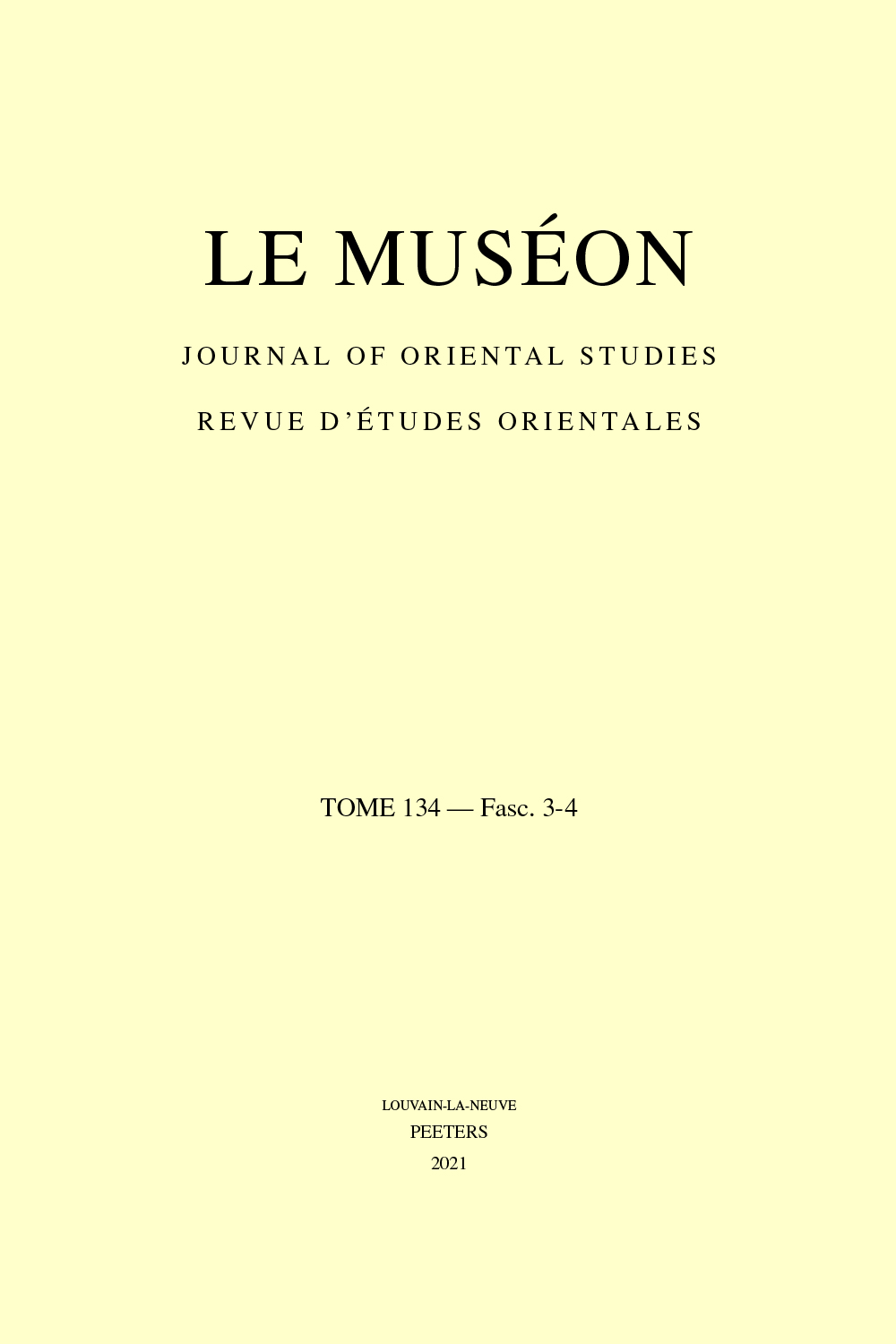 previous article in this issue previous article in this issue | next article in this issue  |

Preview first page |
Document Details : Title: Bayt («House») as «Strophe» in Hebrew, Byzantine and Near Eastern Poetry Author(s): ASLANOV, Cyril Journal: Le Muséon Volume: 121 Issue: 3-4 Date: 2008 Pages: 297-310 DOI: 10.2143/MUS.121.3.2034323 Abstract : Since the use of οἶκος in the lore of Byzantine hymnography is a clear innovation with respect to the legacy of classical Greek poetry, it probably draws its origin from elsewhere. It is most likely a literal translation of the Syriac term. Thus the purpose of this paper is not only to discard the opinion according to which the prosodic use of Hebrew bayt did not exist before it was used as referring to the verse in the Andalusi school of medieval poetry. One has also to ask whether the Hebrew term has been borrowed directly from the Syriac prosodic terminology or through the mediation of Greek. In order to elucidate this point, I would like to examine the semantic implications of the metaphoric use of the word house with the meaning of 'strophe', as it can be reconstructed from the context of early Byzantine Near East. This archeological inquiry in the common linguistic horizon of Jews, Syrians and Greeks in Late Antiquity/ High Middle Ages could help recontextualize the classical moment of Palestinian Piyyut and to view it as a specifically Jewish reinterpretation of the esthetic that prevailed in the Byzantine provinces of Syria and Palestine before the Arab conquests. |
|


